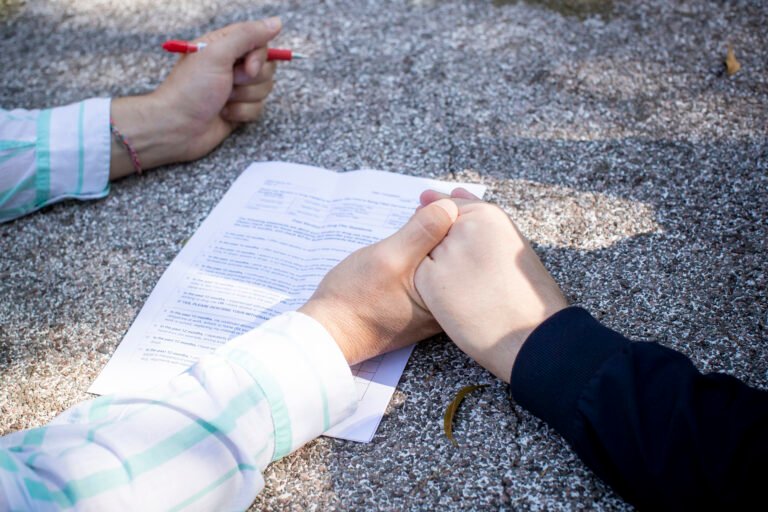Table of Contents
ToggleSigns Of Addiction In A Loved One
It is very important to observe and identify the signs of addiction in a loved one as early as possible. Concern over a loved one’s substance use can be a cause of great stress. People can misuse substances without being addicted to them, but as an onlooker, it is often difficult to know whether they’ve crossed the line from abuse to addiction. Drug misuse can easily lead to addiction in the long run, and it can also be a very difficult topic to broach.
Although this subject is never black and white, and signs may vary from person to person, in the following article we explore some of the warning signs of addiction.

Some of the warning signs of addiction are :
1. Secrecy and Lying :
People who are hiding an addiction will often act in ways that are different from how they usually behave. They might be evasive, secretive, or seem out of character. They might even act differently around you, such as by showing up late or smelling of liquor. It can be challenging for some to admit to a substance abuse problem and many will lie in order to hide their misuse.
2. Mood Swings, Depression and Loss of Interest :
Fluctuations in mood can be a sign of a psychiatric disorder, such as depression, often associated with addiction or based on the substance abused. This can be a vicious cycle in terms of addiction. Certain drugs and alcohol trigger different emotions, and each person’s response to those substances depends upon their own mental health as well as how much of the substance they are using and how often. Loss of interest in activities that they previously enjoyed can also be a sign that addiction is consuming a large part of an individual’s life.
3. Changes in Sleeping Patterns :
For people who misuse drugs, life can become chaotic. Substance users may stay awake all night, sleep at unusual hours, and have trouble following a normal schedule. Stimulant drugs cause a sharp high followed by a crash, resulting in larger amounts of the substance being used in repetition to avoid the comedown. This can cause users to stay awake for long periods of time which eventually culminate in sleeping for days afterwards. These kinds of cycles in turn effect performance at school, employment, and even family obligations.
4. Changes in appearance and weight :
When an individual is struggling with addiction, he or she often changes the way he or she acts, including the way in which he or she dresses. Poor hygiene and a generally disheveled appearance can be a warning sign that all is not well. Additionally, major fluctuations in weight are another indicator. Many substances have a direct correlation to metabolism and appetite, making it difficult for the user to manage their weight.
5. Theft :
Drug addiction may also cause someone to steal from friends and family members in order to sustain their habits. When noticing things of value or money disappearing from around the house, an unfortunate yet common explanation is an individual in your family is struggling with addiction.
What To Do From Here?
If you recognize one or more of these symptoms in a loved one, it is best to be armed with the facts. A trained addiction specialist can help you conduct an intervention, and give advice on getting your loved ones the help they need. In addition to professional help, you can also offer your assistance in the below discussed ways :
- Offer Support : Express your care and willingness to help your loved one through their recovery journey. Let them know you are there to support them in any way you can.
- Listen And Be Patient : Allow your loved one to openly share their feelings and experiences. Recovery can be a long process, so approach it with patience and understanding.
- Reduce Stress And Set Healthy Boundaries : Create a supportive environment by minimizing unnecessary stress and drama. Establish healthy boundaries to effectively support your loved one while also protecting your own well-being.
- Educate Yourself : Learn about addiction and the recovery process. This knowledge can help you provide more informed and effective support to your loved one.
- Avoid Harmful Actions : Refrain from labeling your loved one as an “addict” or bringing up past mistakes. These actions can be counterproductive to their recovery.
Recovery852 assists individuals and families struggling with addiction and other mental health issues like anxiety and depression. Recovery852 is headed by internationally certified addiction professional Grant Sanders. He has over fifteen years of experience and over 3,000 hours of clinical experience working in addiction recovery. He is an experienced interventionist with a degree in social science. If you are planning an intervention with a loved one, contact us today.
- Different Types of Addiction
- Support Network In Recovery From Addiction
- Effective Treatment for Addictive Behaviours
- Cognitive Behavioural Therapy For Addiction
- Setting Realistic And Reachable Wellness Goals In Recovery
- How Addiction Affects Families
- Sober Curious: A Movement For Change
- The Five Rules Of Recovery
- What Is Acceptance and Commitment Therapy?
- Mental Health 102: Understanding Depression
- Unpacking Wine Mom Culture
- The Dangers of Addiction Replacement
- Nurtured By Nature: Nature In Addiction Recovery
- The 12 Steps For Atheists
- A Deeper Look Into Dual Diagnosis
- Financial Wellness in Addiction Recovery
- How Does Stress Affect Addiction?
- Mental Health 101: Understanding Anxiety Disorders
- Talking About Marijuana Use Disorder
- Yoga Practices in Addiction Recovery